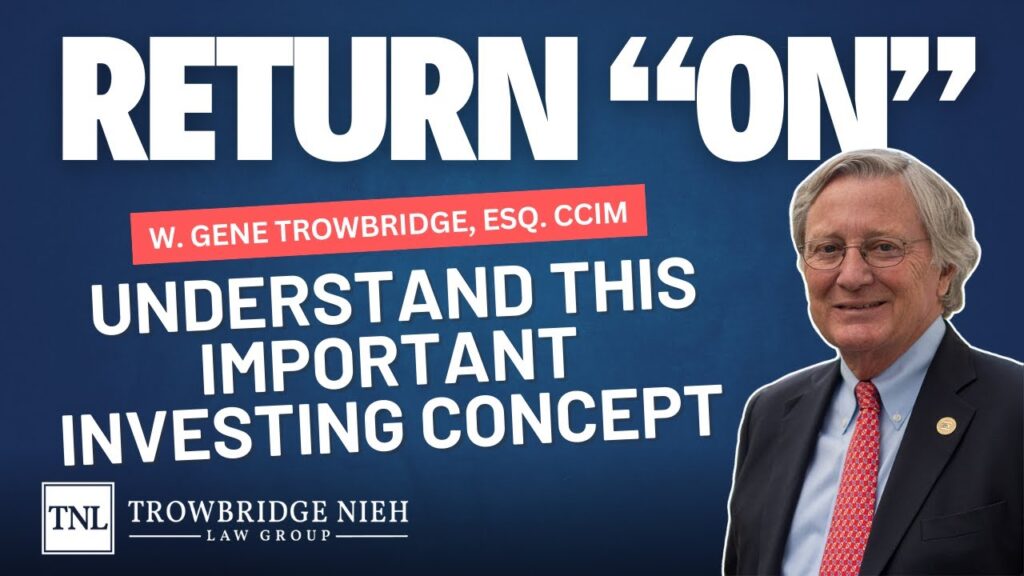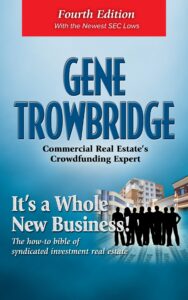In a recent interview on TNL Talks, Gene Trowbridge, Esq. CCIM of the law firm Trowbridge Nieh LLP, spoke with Bo Barron, CCIM, a third-generation real estate professional from Kentucky, about the power of syndication in commercial real estate. The conversation covered a range of topics, including the benefits of syndication, the challenges of managing conflicts of interest, and the future of the commercial real estate industry.
The Benefits of Syndication
Syndication is a powerful tool for real estate investors, allowing them to pool their resources to invest in larger, more lucrative deals. As Barron explained, syndication was the answer to the question of how he could transition from being a broker to being an investor and owner. “I remember listening to Gene explain what a syndication was, and it was the answer to the question of how do I get from my seat to my dad’s seat?” he said. “…and I remember thinking, that’s a path I understand. That can get me to where I wanted to go.”
That can get me to where I wanted to go.
-Bo Barron, CCIM on commercial real estate syndication
Through syndication, Barron was able to raise money from friends and family to invest in his first deal, a 12-unit apartment complex. While the deal didn’t go exactly as planned, it gave him the experience and track record he needed to successfully raise money for future deals. “I think at this point we’ve done, I think six deals over the years,” he said. “So not a lot. It’s not even really, my main thing ’cause we own a brokerage company….We own a property management company…So like the syndication part of our business is not the main thing. But it continues to grow. And I wouldn’t be surprised a couple years in the future if it isn’t the main thing that we do.”
Managing Conflicts of Interest
One of the challenges of being both a broker and a syndicator is managing conflicts of interest. Barron explained that he and his company have strict rules in place to avoid conflicts, such as not buying their own listings. “We won’t buy our own listings that seems to kind of keep us safe,” he said. “…you can really be accused of taking advantage of your clients. So, we won’t buy our own listings.”
Trowbridge agreed, noting that he had seen similar conflicts arise in his own experience early in his career as both a syndicator and broker, and later as an attorney counseling clients, like Barron, who are in similar situations. “I’ve had people come to me and say, boy, that’s pretty cool, Gene. I understand. And I think I can make a career out of this, but I better give up the brokerage business,” he said. “And then I’ve had people who need to do both to make a living. And we have a conversation about the conflict.”
The Future of Commercial Real Estate
When asked about the future of the commercial real estate industry, Barron was optimistic, but cautious. “Who knows?” he said. “I don’t have a clue. Well, I do strongly believe in a few things. Now how all this plays out, I’m not sure. But I believe that in every market, in every market cycle, and every point in the market cycle, in any market, there are opportunities. I believe that. You just have to have the skillset and the diligence to go find those opportunities. And at the end of every single downturn there has ever been, there’s been an upturn right after that.”
[I]n any market, there are opportunities. I believe that. You just have to have the skillset and the diligence to go find those opportunities.Bo Barron, CCIM
Barron’s belief in the resilience of the commercial real estate market is shared by many in the industry. Despite the challenges and uncertainties of the current market, there are always opportunities for those who are willing to put in the work and take calculated risks.
In conclusion, the interview between Gene Trowbridge, Esq. CCIM and Bo Barron, CCIM provides valuable insights into the power of syndication in commercial real estate. By pooling their resources, investors can access larger, more lucrative deals, while also managing conflicts of interest and navigating the ever-changing market.
Trowbridge and Barron concluded the interview by discussing their advice for rookie syndicators. Barron emphasized the importance of finding someone to start with who can provide continuity to investors and fill in any gaps in experience, track record, or database. Trowbridge added that syndication is not a do-it-yourself business and that it is important to hire professionals and be prepared to invest money upfront.
Overall, the interview provided valuable insights into the commercial real estate industry and the experiences of two seasoned professionals. Their advice for rookie syndicators is particularly valuable for those looking to enter the field.




